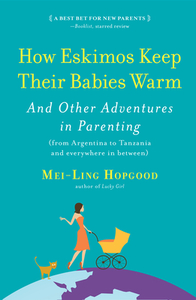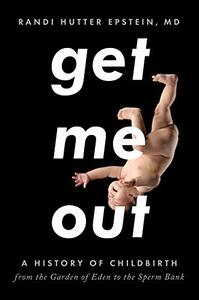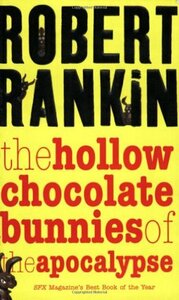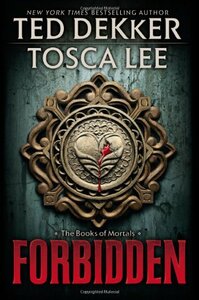You need to sign in or sign up before continuing.
Take a photo of a barcode or cover
sarahetc's Reviews (1.17k)
A pleasant little read about different parenting techniques that might seem odd to those of us raised in America and raising our kids in America. I tried the Argentinian bedtime technique right away and so far so good. Chinese potty training, on the other hand... no thanks! Definitely recommend for those that like kiddos and want to learn interesting things about kiddos in other parts of the world.
There was a germ of an idea here that never developed into anything. It wasn't bad, but there's nothing about it I would recommend, except for people who like books where there are too many characters. Or you'd like to read a book where the author is just confused as hell about geography. For real, someone get Carsten Stroud an atlas.
This book is such a pleasant, concise history of science I really question why it's filed and recommended alongside books about how to actually prepare to give birth and birth a baby. There are no tips or tricks, no birth stories, no timelines or guidelines for preparation. There are just many chapters on different trends in birthing, where they came from, and what they meant to society overall as determined by things like increase or decrease maternal mortality rates or postpartum wellbeing. Epstein is a good historian, though typically assuming everyone shares her progressive perspective, and her prose is light and friendly. I enjoyed learning about the controversial invention of forceps and about how far out the scientific technicalities of gamete donation are in front of the legal and ethical questions. I closed the book thoroughly edified, with lingering amusement over the only question of "caesar" that's more controversial than when the first C-section was performed: who invented the Caesar salad.
No bunnies, no apocalypse, and an anticlimactic climax. Nice bear, tho.
You know how a great set of short stories makes everything seem deeply poetic and meaningful?
I am typing a review on Goodreads. I don't know if it will say anything good. Just some white woman talking about a book about a bunch of people on the Spokane reservation. Maybe it was the 1970s or maybe it was supposed to be now. Maybe it was winter or it was two thousand kinds of summer. I'm hungry. Just typing a review on Goodreads.
I am typing a review on Goodreads. I don't know if it will say anything good. Just some white woman talking about a book about a bunch of people on the Spokane reservation. Maybe it was the 1970s or maybe it was supposed to be now. Maybe it was winter or it was two thousand kinds of summer. I'm hungry. Just typing a review on Goodreads.
The only lousy thing about reading on the kindle, other than having to remember to charge it, is that you can't throw a book across the room. It is the privilege of every reader to get really fed up with a book and throw it across the room; then take a couple deep breaths, get up, go get the book, and get back to reading. As it stands, when I finished this book last night, large confused about how it was going to be over, I didn't throw it. I shut the kindle off. I shut the kindle cover. I set it on the nightstand and took off my glasses. I got up, went to the toilet, and then got back into bed. I shut off light and then went to sleep, kind of but not really thinking about whether or not I would ever try to read the sequel. So really, those are my final thoughts on the book: "Of course there's a sequel" and "must void bladder." And I had such high hopes.
It's been a long, long time since I felt so actively hostile toward a book and its author. I'm not sure why exactly that is. Rather, the reasons for hostility are so many and so varied I don't know if it's possible to sort them out. Mostly, I think that, as a person with a probably greater than average interest in non-pharmaceutical health-maintenance, I expected this book to be somewhat more solution-forward, rather than just a giant horror show of evil people concluding with 19 demands for government intervention.
Petersen's writing is evocative, but her arguments are repetitive, lame, and inconclusive. As I finished the book this morning, one of the last stories she told was of the awful grief a woman felt when her sister died of cardiac events that may or may not have been caused by taking Vioxx. Vioxx was, in fact, pulled from the market several years after that particular death for increasing the chances of cardiac events. Petersen notes not the studies that led to the pull, but the original tests on humans which concluded--and she gives no notes on methodologies or error rates-- that 4 out of every 1000 people showed a cardiac event risk-increase. And that brought it all home for me. In Petersen's world, that 9,996 people might live decades of their life pain free cannot possibly make up for the 4 who may or may not experience greater risk for that greater benefit.
Was the entire book written this way? No. Most of the stories were not about grieving siblings or family members. Most of the stories were about regular people who believed their doctors, or their televisions, or their Sunday circulars. But more than that, they were about people who were, UNIVERSALLY, too stupid to question any of those things. And those that weren't too stupid were proved, time and again, 1000% of the time, to be "old and frail" or "young and easily duped" such that, even those with brains enough to question their doctors, or Big Pharma, were so wholly without agency that bothering to do so would barely occur to them let alone be possible.
Petersen didn't write a monograph. She raked a bunch of muck. For a book published in 2008, when almost nobody was ignorant of lifestyle diseases, lifestyle disease markers, or the contributions of things like environment, diet, and activity level to disease, she devotes two paragraphs to noting that many people wouldn't need medication if they changed their diet and increased their exercise. In fact, in the penultimate chapter, where she details a man whose Type II Diabetes medicine left him with a liver transplant, she actually says that most doctors will never tell their type 2 patients to change their diet or exercise because they assume they can't and they won't. On behalf of fat people everywhere, I call bullshit all over that, for all time.
Nobody with basic reasoning skills thinks pills are magic, doctors are perfect, and pharma is altruistic. Nobody. Yet instead of taking a nuanced look at what the real problems were (obtuse regulation, off-label prescription, individual greed and apathy, to name but a few), Petersen wrote a book where ALL pharm employees are greed and evil, ALL doctors are craven and avaricious, and ALL Americans are stupid and lazy. Unless you'd really like to read about book about the worst way to package an argument such that your basic built-in audience has to disagree with you because you're so aggressively hostile, don't just pass. Run the other way and snatch it out of your friends' hands, like you would a purloined Adderall.
p.s. I'm from Iowa, too. We are not, in fact, America's favorite grotesquely stupid sheeple.
Petersen's writing is evocative, but her arguments are repetitive, lame, and inconclusive. As I finished the book this morning, one of the last stories she told was of the awful grief a woman felt when her sister died of cardiac events that may or may not have been caused by taking Vioxx. Vioxx was, in fact, pulled from the market several years after that particular death for increasing the chances of cardiac events. Petersen notes not the studies that led to the pull, but the original tests on humans which concluded--and she gives no notes on methodologies or error rates-- that 4 out of every 1000 people showed a cardiac event risk-increase. And that brought it all home for me. In Petersen's world, that 9,996 people might live decades of their life pain free cannot possibly make up for the 4 who may or may not experience greater risk for that greater benefit.
Was the entire book written this way? No. Most of the stories were not about grieving siblings or family members. Most of the stories were about regular people who believed their doctors, or their televisions, or their Sunday circulars. But more than that, they were about people who were, UNIVERSALLY, too stupid to question any of those things. And those that weren't too stupid were proved, time and again, 1000% of the time, to be "old and frail" or "young and easily duped" such that, even those with brains enough to question their doctors, or Big Pharma, were so wholly without agency that bothering to do so would barely occur to them let alone be possible.
Petersen didn't write a monograph. She raked a bunch of muck. For a book published in 2008, when almost nobody was ignorant of lifestyle diseases, lifestyle disease markers, or the contributions of things like environment, diet, and activity level to disease, she devotes two paragraphs to noting that many people wouldn't need medication if they changed their diet and increased their exercise. In fact, in the penultimate chapter, where she details a man whose Type II Diabetes medicine left him with a liver transplant, she actually says that most doctors will never tell their type 2 patients to change their diet or exercise because they assume they can't and they won't. On behalf of fat people everywhere, I call bullshit all over that, for all time.
Nobody with basic reasoning skills thinks pills are magic, doctors are perfect, and pharma is altruistic. Nobody. Yet instead of taking a nuanced look at what the real problems were (obtuse regulation, off-label prescription, individual greed and apathy, to name but a few), Petersen wrote a book where ALL pharm employees are greed and evil, ALL doctors are craven and avaricious, and ALL Americans are stupid and lazy. Unless you'd really like to read about book about the worst way to package an argument such that your basic built-in audience has to disagree with you because you're so aggressively hostile, don't just pass. Run the other way and snatch it out of your friends' hands, like you would a purloined Adderall.
p.s. I'm from Iowa, too. We are not, in fact, America's favorite grotesquely stupid sheeple.
God bless you, [a:Ted Dekker and Tosca Lee|6421204|Ted Dekker and Tosca Lee|http://www.goodreads.com/assets/nophoto/nophoto-U-50x66.jpg], for writing Christian literature that reads like a Bruckheimer movie. I am happy the sequel is waiting on the New Releases shelf at the library.
I really liked this book. I like birth stories, so I guess I'd be predisposed to like it, but I really liked this book. Burst into tears twice while reading it, actually, because I was so moved by the birth stories. And possibly because I have just entered the final month of my second pregnancy and may be a little sensitive to these sorts of things, but still. What I can't figure out is how I liked a book so very much when it has such an annoying and absurd protagonist? There needs to be a new word that combines pedantic and didactic. Pedadictic or something. Every two chapters or so I was suddenly transported to 11th grade history class, where I learned all about labor movements and womens movements and movements movements movements radicals name-dropping! There's author self-insertion and then there's the author having a wet dream of progressive womanhood and calling it a novel and this was the latter. Despite that, though, greatly enjoyable book. I'd like there to be a sequel!









